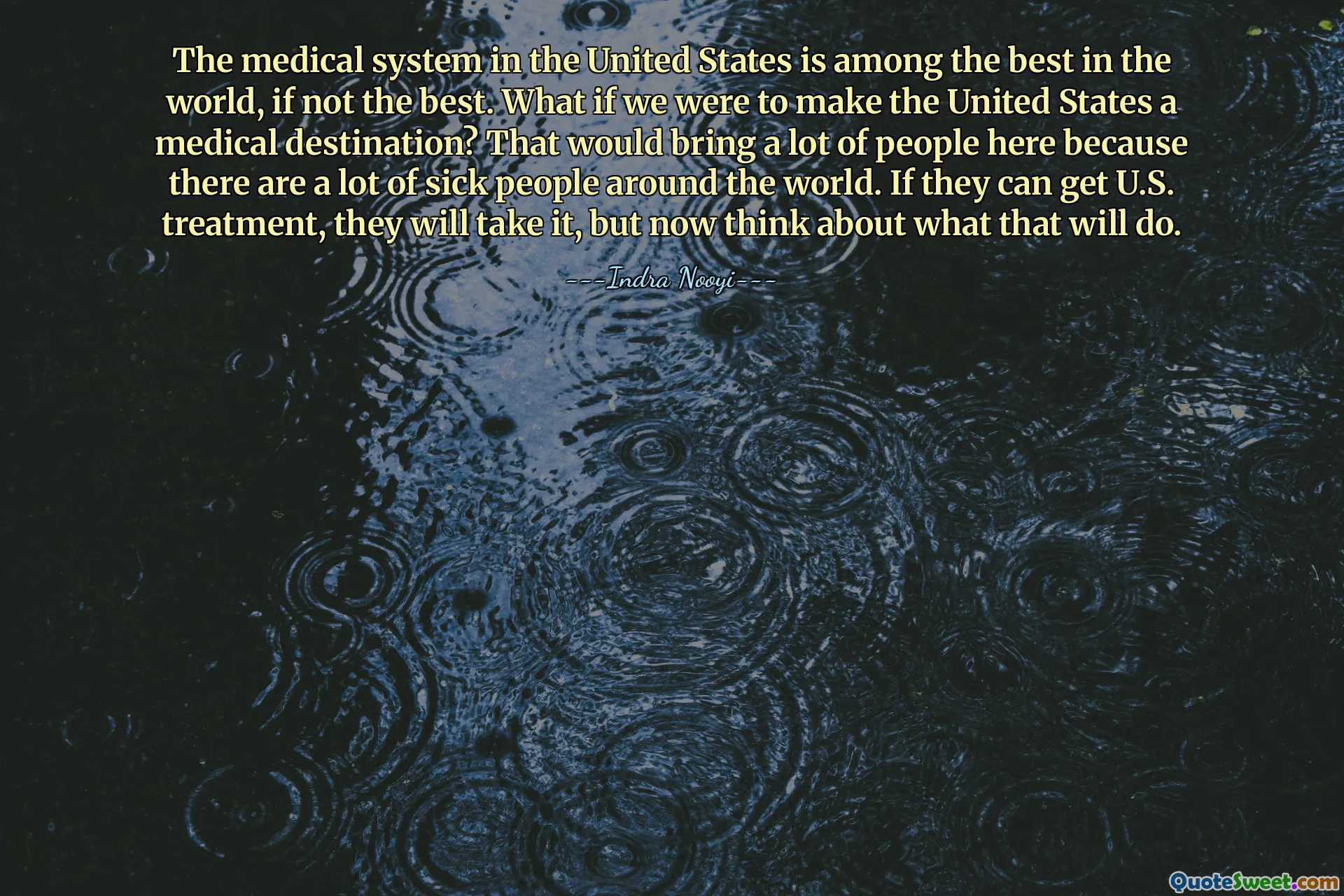
The medical system in the United States is among the best in the world, if not the best. What if we were to make the United States a medical destination? That would bring a lot of people here because there are a lot of sick people around the world. If they can get U.S. treatment, they will take it, but now think about what that will do.
This quote raises an important and often overlooked perspective on the global health landscape, focusing on the United States as a potential hub for medical tourism. The U.S. medical system is renowned for its advanced technology, highly trained professionals, and cutting-edge research, which clearly sets it apart as one of the best in the world. However, healthcare accessibility and cost issues remain significant challenges domestically. From an economic and humanitarian standpoint, positioning the U.S. as a premier medical destination could lead to multiple benefits.
For one, it could stimulate the healthcare economy by attracting patients worldwide, thereby increasing funding and resources to innovate and improve healthcare services even further. It could foster international collaboration in health sciences, encouraging knowledge exchange and development. Moreover, it has the potential to provide critically needed treatments to those who might not find adequate healthcare options in their home countries. On the flip side, this proposition raises ethical questions about healthcare equity—whether prioritizing medical tourists might impact the availability or affordability of care for American residents. Additionally, the logistics of welcoming a large influx of international patients would require considerable infrastructure, policy-making, and cultural sensitivity. The quote nudges us to think about the broad implications of health systems in a global context—not just domestically—while challenging us to consider innovative ways to leverage strengths for greater good. Ultimately, the idea of transforming the U.S. into a global medical destination encapsulates the intersection of health, economics, politics, and humanity in complex and thought-provoking ways.







